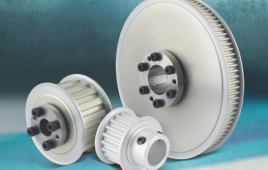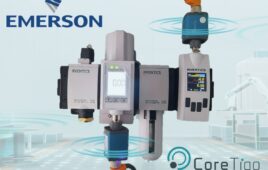 During the development of its boat, which is now close to its final design phase, the SP80 team has chosen Fischer Connectors for the data-transmission solutions interconnecting the various sensors that will equip the boat and its pilot to break the world sailing speed record. The technical challenge is to sail at 80 knots (148.16 km/h), powered only by the wind. This is 14.55 knots faster than the record of 65.45 knots (121.21 km/h) set in 2012.
During the development of its boat, which is now close to its final design phase, the SP80 team has chosen Fischer Connectors for the data-transmission solutions interconnecting the various sensors that will equip the boat and its pilot to break the world sailing speed record. The technical challenge is to sail at 80 knots (148.16 km/h), powered only by the wind. This is 14.55 knots faster than the record of 65.45 knots (121.21 km/h) set in 2012.
The carbon-fiber SP80 boat looks like a Formula 1 car combined with a fighter jet designed specifically to glide on the water, featuring a super-ventilating triangular hydrofoil and towed by a huge kite wing. “Several projects are in the running to break the long-standing world sailing speed record,” said Mayeul van den Broek, CEO of the SP80 startup based in Renens near Lausanne, Switzerland, and created in 2019 by a team of engineers and students from the Swiss Federal Institute of Technology in Lausanne (EPFL).

Two 3D renderings of the SP80 sailing on the water. (photo courtesy of SP80)
“This technological adventure is fascinating, as we’re confronted with extremely challenging physical laws. That’s why our international team of nearly 50 people, some of whom are now finalizing the innovative design of our boat, which is being built in Persico Marine’s shipyard in Italy, is anxious to get the very best in terms of data-transmission performance and reliability. These technical requirements are crucial for interconnecting the various sensors with which our boat and its pilot will be equipped during the launch. The boat’s enhancement runs are scheduled for the end of the year, and the record-breaking event is scheduled for next year.”
The data collected by the multiple sensors and loggers monitoring the boat’s structure and the pilot’s performance will be transferred through the connectors, associated cables, and electronic solutions of Fischer Connectors, the Swiss-headquartered supplier of high-performance connectivity solutions that are world-renowned for their ruggedness and resistance to demanding operating conditions such as marine and underwater, defense & security, medical, and test & measurement.
“The technology partnership with Fischer Connectors is a logical step forward in our record-breaking ambition,” explained van den Broek. “The innovations we’re putting in place to enhance our boat’s aerodynamics above water and minimize the friction of its hull and foil under water need to be monitored during the boat’s development phase and during the speed run itself. To ensure the efficient transfer of these monitoring data, we need a solutions provider that has not only expertise in signal integrity and data transmission and management but also a holistic approach to electronic systems to provide the end-to-end connectivity solutions required for our sensing system.”
During the design phase, sensors are used to improve and control the robustness of the high-performance materials (carbon, titan, stainless steel) of the boat’s structure. Thanks to the design of the super-ventilated foil, stability is optimized, and the impact of cavitation — a phenomenon in which water starts boiling around foils at extreme velocities, slowing the boat down — is avoided. During the speed run, data are collected from the various electronic modules and control sensors directly integrated into the boat, and from the monitoring sensor communications between the pilot and the technical crew onshore, including biometric data transferred through sensors worn on the pilot’s body, such as vital and security parameters.

Under construction at Persico Marine’s shipyard.
“The SP80 project is exciting and inspiring,” said Fischer Connectors’ CEO Jonathan Brossard,” as it combines innovation and performance to push the boundaries of physical laws thanks to unique solutions and daring concepts. One member of the SP80 R&D team is part of our own R&D center, making the exchange of expertise more efficient and easier. We look forward to discovering the technological breakthroughs on which the SP80 team is working.”
The final design of the boat for the record will be revealed to the public in spring 2022. The launching of the boat will take place at the end of 2022, while the first tests are scheduled in the South of France for the spring or autumn of 2023 — the two periods of the year that offer the best weather conditions for sailing.
Fischer Connectors
fischerconnectors.com
Filed Under: Connectors (electrical) • crimp technologies, Uncategorized




